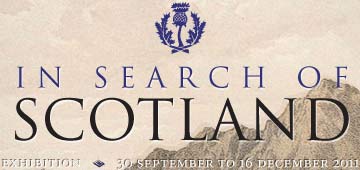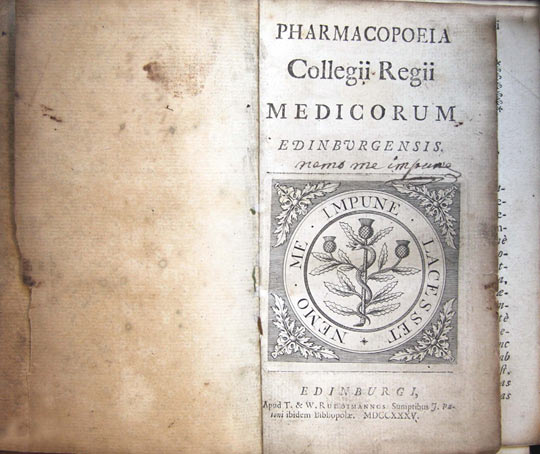Edinburgh
Cabinet 17
Edinburgh is justifiably proud of the role that medicine has played in its history and development.
The University’s Medical Faculty was formed in 1726, with alumni such as Sophia Jex-Blake (the first woman to study medicine at Edinburgh), Joseph Lister (the father of modern antisepsis) and William Withering (discoverer of Digoxin) known throughout the world.
Edinburgh’s Royal College of Surgeons of Physicians was established earlier in 1681. Their first Pharmacopoeia, a catalogue of drugs and preparations that helped standardize medical prescriptions and the substances used in treatment, was issued in 1699.
There is a very home-grown touch to this third edition of 1735; notice the thistle and leaves wrapping around the rod of Asclepius, the ancient symbol associated with astrology, medicine and healing.
Royal College of Physicians of Edinburgh, Pharmacopoeia Collegii Regii Medicorum Edinburgensis. [Edinburgh: T. & W. Ruddimann], 1735.


